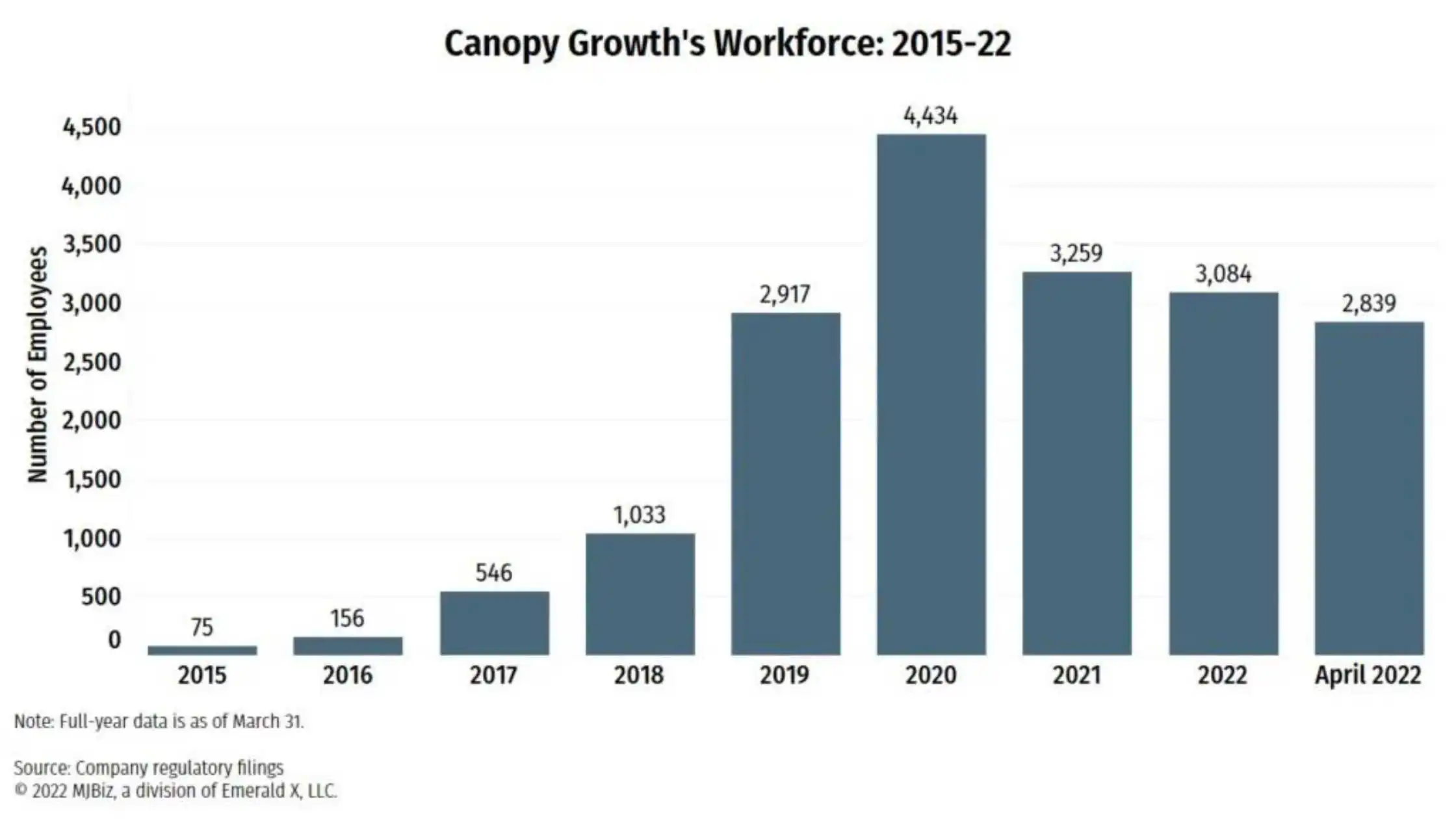Financing challenges are at the top of a long list of growing pains cannabis companies are facing.
Despite more than three-quarters of the U.S. population now living in a state that has legalized some form of marijuana, it remains a Schedule 1 controlled substance at the federal level – creating both financial and operational hurdles for law-abiding operators in the ever-expanding cannabis landscape.
In Colorado alone, the economic impact of the passing of Amendment 64 (which legalized recreational marijuana in the state) is staggering—it created jobs and increased tourism and tax revenue.
According to data from the state’s Marijuana Enforcement Division, Colorado employed at least 42,000 workers in the cannabis industry as of December 2021.
Additionally, House Bill 1090, passed in November 2019, opened the door for out-of-state investors and publicly traded companies to invest in Colorado’s cannabis industry.
This has led to a flurry of consolidations, mergers, and acquisitions in the Colorado marijuana market, a trend happening in the legalized cannabis industry across the United States.
Despite the rapid growth, the federal illegality of marijuana makes it difficult for cannabis-related businesses to access traditional banking and financial services, including raising capital from debt or equity.
3-4 times the cost of similar businesses
Cannabis owners have three to four times higher operating and financing costs than their non-cannabis-industry counterparts.
The estimated cost of building a new retail, cultivation, or manufacturing facility has increased over the past ten years from $200,000 to up to $5 million.
Factors driving this dramatic increase include the cost of regulatory requirements, supply-chain management costs associated with the inability to transfer products between states, and suppliers’ decreased negotiation power.
Despite being a $30 billion-plus industry in the U.S. today, according to the 2022 MJBiz Factbook, cannabis operates without access to federal banking.
State-compliant marijuana businesses cannot accept credit cards and have difficulty acquiring traditional loans, setting up deposit accounts, or any conventional treasury services offered to other consumer packaged goods, manufacturing, agriculture, and retail companies.
Many cannabis executives and employees have also had their personal bank accounts closed because of their affiliation with the marijuana industry.
Marijuana producers cannot establish bank accounts or use credit card processing services.
This forces the industry to deal primarily in cash and debit card transactions.
These limitations significantly restrict the ability of cannabis companies to finance growth.
The lack of access to banks and limited supply of lenders, combined with a high demand for financing, result in extremely high-interest, nontraditional loans throughout the cannabis industry.
Lending rates for cannabis companies are significantly higher (up to four times) than in other industries, and current financing options for private companies are limited to business cash advances, purchase order financing, or convertible debt.
While obtaining investor capital is easier for public cannabis companies, they also face similar debt-financing challenges regarding interest rates, loan terms, and capital structure.
Institutional investors in the industry are still mainly on the sidelines and limited to family offices and hedge funds.
Finally, Section 280E of the federal tax code, which taxes gross profit by eliminating most deductions, effectively results in the federal government taking 40%-70% of a company’s income, reducing the ability to use working capital to finance operations and future growth.
In addition to this enormous tax rate, cannabis companies do not have the legal right to declare bankruptcy, making this higher-risk industry even more risky.
Strategies for consolidation, M&A, and IPO opportunities
I recently had the opportunity, alongside Jared Benedict at MorganFranklin Consulting, to moderate a panel of industry leaders – including Wanda James, the first African-American woman to own a marijuana dispensary in the United States (Simply Pure in Denver), Frank Knuettel, CEO of vertically integrated multistate operator Unrivaled Brands, and Terry Buffalo, former CEO of American Cannabis Co. – to discuss the myriad pain points facing cannabis companies and how they’ve overcome challenges.
The panelists shared their industry insights with more than 100 participants, including their experiences with startup funding, operations and expansion costs, increasing market share, the evolving legal environment, and their strategies for approaching financial and public markets.
The key lessons from the panel were:
- Obtaining capital funding will continue to challenge emerging and growth-minded cannabis companies.
- Managing operational costs will be detrimental to profitability because of market dynamics, regulatory requirements, and disparate state and federal regulations.
- Given the influx of players entering the cannabis market, maintaining market share will be complicated for boutique and smaller dispensaries.
As we wait for the federal government to change restrictive laws detrimental to the cannabis industry, operators will need to develop strategies to minimize the unique excessive costs.
By collaborating with key industry leaders on pressing issues, cannabis companies will find opportunities to increase their market share, build their brands, and innovate ways to drive operations forward.
Bea Sonnendecker is managing director of Denver-based Vaco, a talent solutions firm that offers consulting, contract, and direct hire strategies worldwide.
Disclaimer: https://mjbizdaily.com/opinion-financing-challenges-continue-to-plague-mainstream-cannabis-industry
Posted by Times Of Hemp , #TOH , #TimesOfHemp , https://timesofhemp.com/





